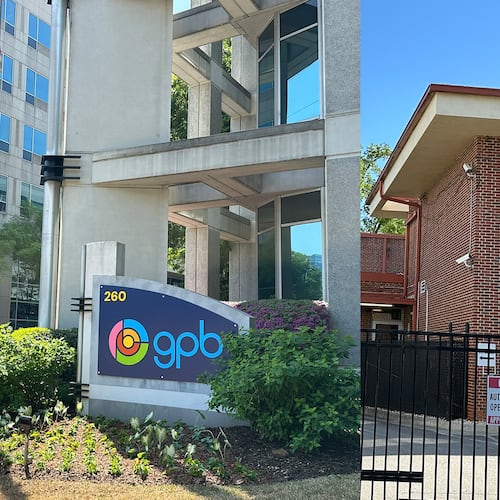The controversial Sabal Trail natural gas pipeline through Southwest Georgia moved one giant step closer to construction Friday when a federal agency said the 157-mile stretch through Georgia wouldn’t unduly harm groundwater, wetlands or four rivers on its route to Florida.
Staff with the Federal Energy Regulatory Commission, disregarding earlier concerns by another federal agency, gave environmental approval for the $3.2 billion pipeline which may not deliver a drop of gas to Georgia.
“The FERC staff concludes that approval of the (pipeline) would have some adverse environmental impacts; however, these impacts would be reduced to less-than-significant levels with the implementation of the applicants’ proposed mitigation and the additional measures recommended in the final EIS,” FERC stated.
Georgia landowners and environmentalists were livid.
“This report just shows they are nothing but a lap dog for the natural gas industry and they’ve never seen a pipeline they don’t like,” said Steve Caley, legal director for Atlanta-based GreenLaw which is fighting the pipe. “They issued a final environmental (statement) while acknowledging they don’t have all the information yet.”
Spectra Energy, the Texas-based pipeline builder, wants to deliver 1 billion cubic feet of natural gas per day from a major trunk line in Alabama to Florida. The proposed route would mostly follow existing utility rights-of-way, a factor cited Friday by FERC in support of the plan.
It would also cross under the Chattahoochee, Flint, Withlacoochee and Ochlocknee rivers. Spectra says the pipe will be buried at least 32 feet below any stream.
“We believe that FERC has performed a very comprehensive evaluation of alternative routing, impacts involving karst, surface water and ground water aquifers, protected species habitat and properties crossed by the pipeline, and has proposed reasonable conditions to mitigate those impacts for the Sabal Trail project,” Spectra said in a statement.
Federal environmental officials earlier this year outlined “very significant concerns” over the proposed route. The Environmental Protection Agency recommended that Spectra reroute the project to avoid more than 1,000 acres of wetlands, the Floridan Aquifer that supplies drinking water to millions of people and “other environmentally sensitive areas.”
“And FERC completely ignored all of them,” GreenLaw’s Caley said. “They totally ignored all the scientists at EPA, the expert reports we submitted and thousands of comments from public citizens.”
U.S. Rep. Sanford Bishop sent two letters this year to FERC complaining about the location of a compressor station near his church in Albany. The compressor won’t be moved, according to FERC and Spectra. Bishop couldn’t be reached Friday afternoon.
Spectra, in a statement, said: “We believe that FERC has performed a very comprehensive evaluation of alternative routing, impacts involving karst, surface water and ground water aquifers, protected species habitat and properties crossed by the pipeline, and has proposed reasonable conditions to mitigate those impacts for the Sabal Trail project.”
Georgia’s Department of Natural Resources must still approve an air quality permit for the compressor station. FERC commissioners must also sign off on the project. The U.S. Army Corps of Engineers may weigh in too. GreenLaw is considering a lawsuit.
About the Author
Keep Reading
The Latest
Featured


